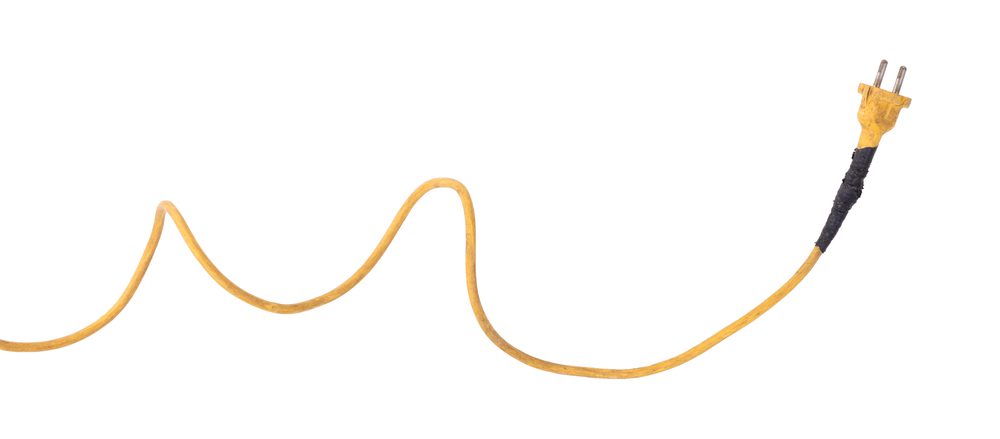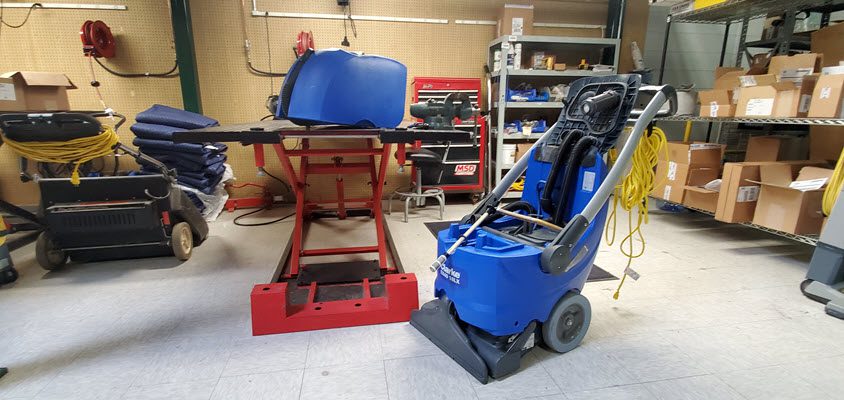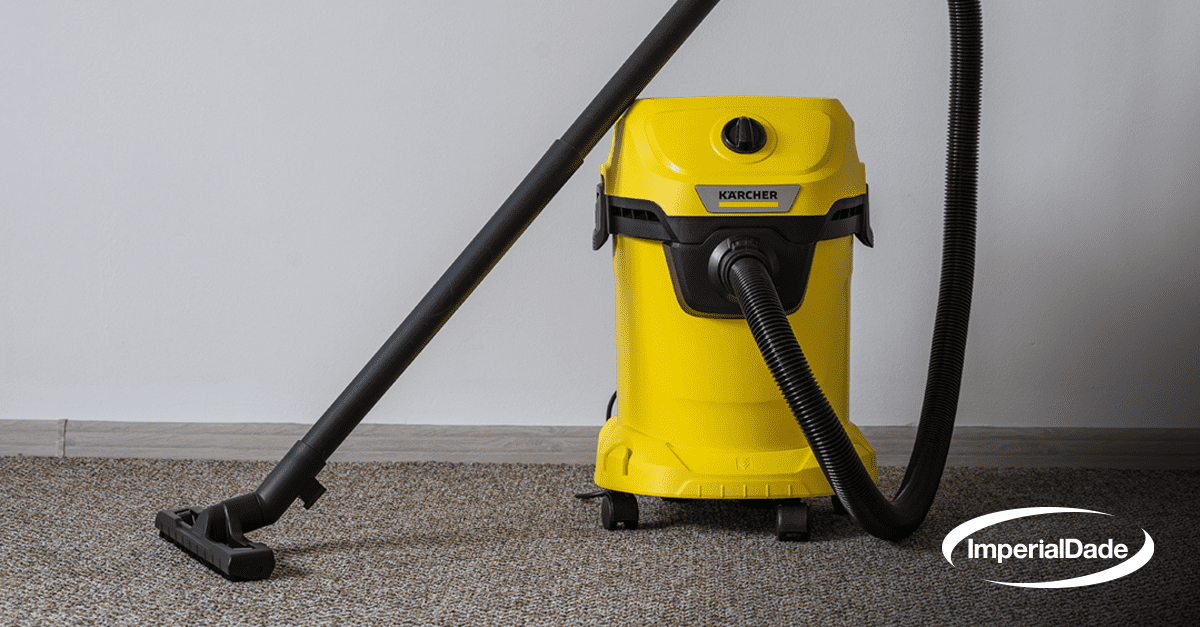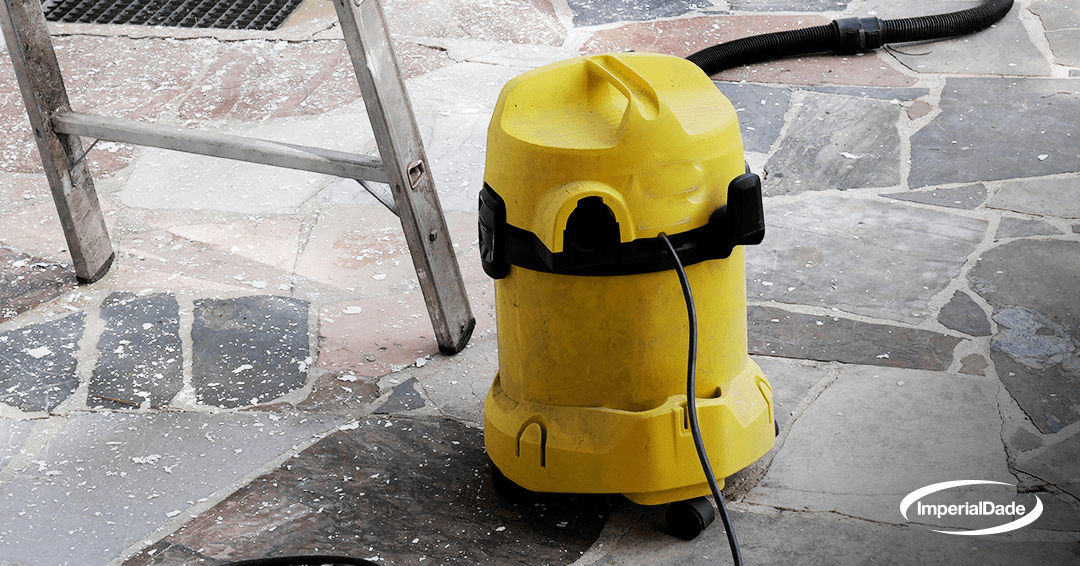Wet/dry vacs are perfect for cleaning up a wide range of messes, from liquid spills to dry debris. However, like any piece of equipment, wet/dry vacs can encounter problems that impede their performance.
In this comprehensive article and video, we will look at four of the most common issues with wet/dry vacs and go over how you can troubleshoot them.
4 Most Common Wet/Dry Vacuum Problems
Key issues covered from most to least common include:
- Motor Cuts Out
- Poor Suction
- Foul Odors
- Dust Ejection
1. Motor Cuts Out
One of the most frustrating problems you might encounter with your wet/dry vac is the motor cutting out unexpectedly. There are a few potential causes, and it’s crucial to identify and address them promptly.
There are two good ways to troubleshoot the motor cutting out: first, check the cord, then the on-off switch.
Possible Cause: Cord Issues
A common and easily fixable reason for a motor cutout is an issue with the power cord.
Check if the cord is securely plugged into the wall outlet and inspect it for visible damage, such as bent or missing prongs. If you find damage, consider replacing the cord. If the cord does not appear damaged, try another electrical outlet to rule out a bad plug.

Possible Cause: Broken On-Off Switch
If the cord is not the issue, the motor cutout might result from a busted on-off switch.
Sometimes, after years of use, the switch can wear down. The only option here is to replace the on-switch. If the on-off switch is fine, there’s nothing wrong with the cord, and the motor still cuts out, the problem may be more complex.
In this case, it’s likely a mechanical or electrical issue. If so, the only recommended course of action is to contact a certified technician with the expertise and tools needed to diagnose and resolve the problem.

2. Poor Suction
Another common issue with wet/dry vacs is poor suction. Issues surrounding suction can lead to rework, decreased productivity, and longer completion times for cleaning tasks.
There are several reasons why your wet/dry vac might experience poor suction, including blockages, a loose hose connection, holes in the hose, or issues with the filter.
Possible Cause: Blockages
Blockages are a prevalent issue, mainly when working with medium-to-large-sized debris. However, it’s important to understand that even smaller debris can cause blockages.
Check ports or points of entry, such as the mouth of the wand or the inlet, for potential blockages. These areas are where debris often enters the hose or tank, making them the most likely spots for a blockage to occur.
Possible Cause: Damaged or Loose Hose
A hole in the wet/dry vac hose can lead to a significant loss of suction. If you discover a hole, replace the hose promptly, as a damaged hose cannot be effectively repaired. Or, it could just be that the hose wasn’t adequately secured. In this case, simply tighten it, and your suction troubles should go away.
Possible Cause: Filter Issues
Filters can become clogged with debris after extended use, severely affecting the suction power of the vacuum. If the filter is visibly clogged, clear it by shaking or tapping it. Regularly cleaning the filter can help maintain suction power.
If the filter is heavily used or worn, it may be beyond cleaning. When that happens, it’s time for a replacement.
3. Foul Odors
Unpleasant odors from your wet/dry vac can be a major source of frustration. Odor is typically caused by residues left behind after wet pickups, but it can also result from using the wrong filter.
Possible Cause: Wet Pickup Residue
After using your wet/dry vac to remove liquids, it’s crucial to thoroughly rinse, clean, and air-dry the tank to prevent residue buildup and subsequent odor formation. If your model has a poly tank, this issue becomes time-sensitive. Residue can seep into the poly tank, so it should be cleaned right after use.
For more stubborn odors, consider soaking the tank in an enzymatic solution. Ensure that you clean the tank thoroughly to prevent recurring odors and store the wet vac with the tank cover off so it can air dry.

Possible Cause: Wrong Filter
If you suck up water, slurry, or any other type of liquid using a dry filter, it will ruin the filter. When this happens, mold and mildew formations are almost guaranteed. This is where the foul odor comes from.
All you can do here is throw away the filter and clean out the machine. You may need to disassemble the unit and clean it manually with warm water and soap. The hose and wand can be soaked in a warm bath with soap or an enzymatic solution for odor removal.
4. Dust Ejection During Dry Pickup
Sometimes, users can experience dust ejection while using the vacuum for dry and fine particulate pick-up. Fortunately, it’s usually easy to identify and resolve this issue.

There are three leading causes: the filter is clogged with too much debris, the filter is worn or damaged, or you forgot to use a filter.
Possible Cause: Too Much Debris
Dust ejection is often a result of a clogged filter. Simply clean the filter to resolve the issue.
Possible Cause: Worn or Damaged
If the filter is worn out or damaged, it can lead to dust ejection. All that means is that it’s time for a replacement. Keep spare filters on hand for when this happens.
Possible Cause: Forgot to Use a Filter
Occasionally, dust ejection occurs because the operator forgot to install a filter before using the wet/dry vac. Always remind operators to check for a filter before starting any cleaning tasks.
Final Thoughts
While wet/dry vacs are powerful machines that can tackle a wide range of cleaning tasks, they’re not impervious. It’s essential to be aware of common wet/dry vac issues and how to troubleshoot them effectively.
Regular maintenance, prompt identification of issues, and appropriate care can keep your wet/dry vac running smoothly. For more complex issues, such as electric and mechanics problems, don’t hesitate to seek assistance from a certified technician.
Not sure who to call? Consider reaching out to an Imperial Dade facility near you.
Our janitorial equipment specialists can service a wide range of janitorial equipment, not just wet/dry vacs. They are part of a larger team of highly-rated technicians that are dedicated to providing you with the necessary support to make responsible decisions regarding your janitorial equipment.
If you’re still not sure about how to troubleshoot your wet/dry vac, get in touch with an equipment specialist today to set up a free, in-person or virtual consultation.